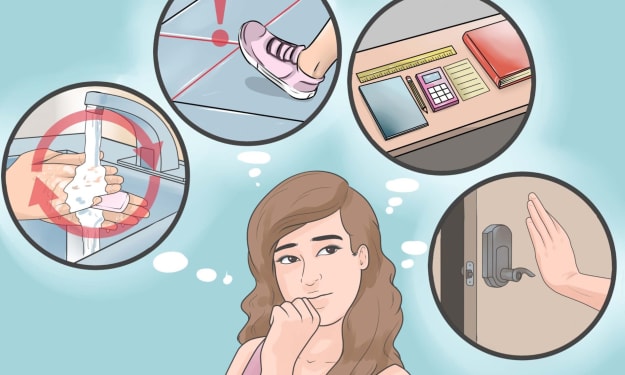The Connection between Panic Disorder and Depression
The Connection between Panic Disorder and Depression

Panic disorder and depression are two mental health conditions that can significantly impact an individual's quality of life. While they are two separate conditions, they often occur together, and research has shown that there is a strong connection between them. In this article, we will explore the connection between panic disorder and depression and the role of a therapist in Mumbai for depression.
What is Panic Disorder?
Panic disorder is a type of anxiety disorder characterized by recurrent, unexpected panic attacks. Panic attacks are intense episodes of fear and anxiety that are accompanied by physical symptoms such as heart palpitations, sweating, trembling, and shortness of breath. Panic attacks can be triggered by a specific situation or can occur unexpectedly.
Individuals with panic disorder may also develop avoidance behaviors, where they avoid situations or places that they fear may trigger a panic attack. This can significantly impact daily life and limit the individual's ability to engage in activities they enjoy.
What is Depression?
Depression is a mood disorder that is characterized by persistent feelings of sadness, hopelessness, and a lack of interest in activities that an individual typically enjoys. Depression can impact daily life, making it difficult to perform daily tasks and maintain healthy relationships.
Symptoms of depression include:
- Feeling sad or hopeless
- Loss of interest or pleasure in activities
- Changes in appetite or weight
- Difficulty sleeping or sleeping too much
- Fatigue or lack of energy
- Feelings of worthlessness or guilt
- Difficulty concentrating or making decisions
- Thoughts of suicide or self-harm
The Connection between Panic Disorder and Depression
Research has shown that there is a strong connection between panic disorder and depression. According to the Anxiety and Depression Association of America, up to 50% of individuals with panic disorder also have depression.
One theory behind the connection is that both conditions involve dysregulation of the brain's neurotransmitters. Neurotransmitters are chemicals that transmit signals between neurons in the brain. In panic disorder, there may be an overactive fear response in the brain, leading to the physical symptoms of panic attacks. In depression, there may be a decrease in certain neurotransmitters, such as serotonin, which can impact mood.
Additionally, individuals with panic disorder may develop depressive symptoms due to the impact of the disorder on their daily life. Panic attacks can be debilitating and lead to avoidance behaviors, which can limit social interactions and impact work or school performance. This can lead to feelings of hopelessness and a lack of purpose, which are common symptoms of depression.
On the other hand, individuals with depression may develop anxiety or panic symptoms due to the impact of the disorder on their daily life. For example, the loss of interest in activities may lead to social isolation and limited exposure to new experiences, which can trigger anxiety or panic symptoms in individuals with a predisposition to panic disorder.
Therapist in Mumbai for Depression
Seeking the help of a therapist in Mumbai for depression can be beneficial for individuals with panic disorder and depression. Therapists can provide evidence-based treatments such as Cognitive Behavioral Therapy (CBT) and medication management.
CBT is a form of psychotherapy that focuses on identifying and changing negative thought patterns and behaviors that contribute to depression and anxiety. CBT for panic disorder may involve identifying triggers for panic attacks and developing coping strategies to manage symptoms. CBT for depression may involve identifying negative thought patterns and developing positive self-talk and behavioral activation strategies.
Medication management may be beneficial for individuals with depression and panic disorder. Medications such as selective serotonin reuptake inhibitors (SSRIs) can help regulate neurotransmitters in the brain and improve symptoms of depression and anxiety.
Therapists in Mumbai can also provide support and guidance for loved ones of individuals with depression and panic disorder. They can help loved ones understand the symptoms of these conditions and develop coping strategies to manage their own stress and support their loved ones. Additionally, therapists can provide resources and referrals to support groups and other mental health professionals as needed.





Comments
There are no comments for this story
Be the first to respond and start the conversation.